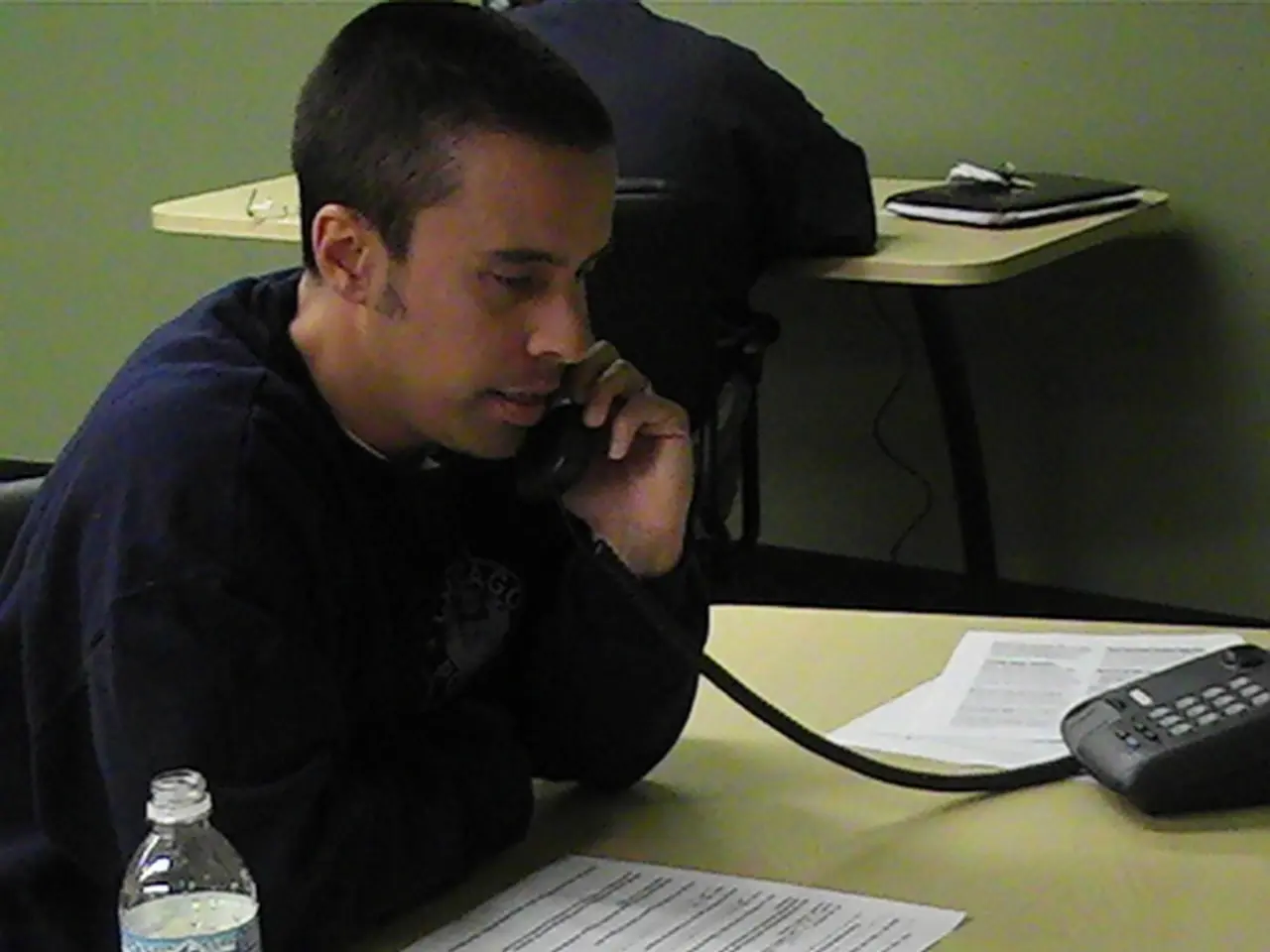Remote Medical Kiosks to Bridge Healthcare Shortfalls in France
Telemedicine Booths Transform Healthcare Access
Telemedicine booths are revolutionizing healthcare access, particularly in areas lacking regular medical infrastructure. Institutions across Europe, including the University Hospital of Marburg and the University Hospital RWTH Aachen, are testing various types of these innovative healthcare stations.
The University Hospital of Marburg is testing the 'DocPro' box, where a computer-controlled avatar takes over patient history while vital signs are automatically measured. On the other hand, RWTH Aachen University Hospital has developed a converted toilet cabin into a telemedical care station, equipped with cameras, ECG, and a digital stethoscope, intended for use in crisis and disaster areas. This mobile station is powered by solar energy and supported by satellite, making it ideal for remote locations.
The telemedical care station from RWTH Aachen has been tested at a large music festival and in the community of Saint-Georges-Motel, France. The booth in Saint-Georges-Motel, which has been operating since April, is open daily from 8 am to 8 pm, excluding holidays. On average, two to three consultations are held daily at the booth. The mayor of Saint-Georges-Motel, Jean-Louis Guirlin, has described the service as a huge success.
Other providers like Tessan and Medadom also offer telemedicine booths, including smaller models. The Finnish healthcare provider Terveystalo reports the use of MedicubeX's eHealth Station, which collects comprehensive vital data and is in use at a health center in Helsinki, as well as reportedly available in England, Estonia, and Germany.
Medical ethicist Urban Wiesing has expressed concerns about the use of telemedicine booths, emphasizing the need for research on their effectiveness and the avoidance of risks such as inaccurate diagnoses and data protection issues. Despite these concerns, companies providing medical booths aim to increase the number of installed booths from 12 to 100 nationwide by January. The cost of acquisition for a medical booth is around 50,000 euros, with annual operating costs of 6,000 euros. The company aims to expand to other European countries within three years, adhering to each country's specific legal requirements.
Access to medical care is challenging for many people in rural France, with over 5,000 family doctor positions unfilled and this number expected to rise. The telemedicine booths offer automated recording of patient data and relief for medical staff, addressing this issue by bringing healthcare services closer to the people who need them. Appointments can be booked by phone, online, or via a QR code on a smartphone, making the service easily accessible.
As investments in AI-driven digital health technologies increase and telehealth infrastructure expands, several companies, particularly in Germany, plan to introduce telemedicine cabins in other European countries within the next three years. These companies must comply with strict legal requirements such as the EU GDPR for data protection, the German Social Code Book V (SGB V) for healthcare regulations, and additional national telemedicine laws that regulate data security measures including end-to-end encryption, two-factor authentication, and patient data control to ensure secure and lawful use of telemedical services.
Read also:
- Apparition's Significance and its Delivered Messages - as discussed by Sensenmann
- Explored the Popular Health Assessment with a Queue of 100,000 Aspiring Participants - Here's My Unadulterated Opinion
- Hearing impairment condition: Recognizing symptoms and management approaches
- Exploring Recurring Actions in Mature Individuals: An Analysis of Persistent Actions in Adults' Daily Lives






